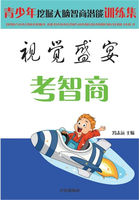西汉前期的董仲舒,
对孔孟学说有研究。
景帝封他为博士,
班固《汉书》记缘由。
仲舒读书很用功,
整天关在屋里头。
三年不曾出门去,
房前菜园也不瞅。
何时皇室对他才尊重?
那是在武帝刘彻即位后。
汉武帝常请他提建议,
董仲舒议论颇深透。
他认为汉朝继秦而建立,
秦朝的制度已腐朽。
这好比琴上弦索已陈旧,
不换新弦难弹奏。
施政的方针也一样,
改革不可稍停留。
琴弦该换不更换,
琴师的技巧再高也难弹奏。
应当改革不改革,
政治家想干出政绩不能够。
“改弦更张”作成语,
常比喻用新的方针政策代陈旧。
政治上的重大改革也可比,
唯改革社会才前进不退后。
Change the String on the Banjo
Dong Zhongshu,in the Western Han Dynasty(206B。C。—24A。D。),made a very good study of Confucius'and Mencius'Doctrines。Emperor Jing honoured him as a doctor,about which Bangu's“History of Han”has given accounts。
It is said that he studied very hard,and shut himself in his room day and night。For three years he had not gone out of his room,and paid no heed to the garden in front of his house。When did His Majesty honour him?Not until Emperor Wu,Liu Che had come to the throne。
Emperor Wu often asked him to give him some advice,and Dong's account was deep and of great significance。He said that Han had derived from Qin,but Qin's system had rotted through。This was just like an old banjo whose strings had worn out。You could not play it any more unless you changed the strings。An administrative policy is the same way,so you must make a reform without delay。If a banjo's strings need changing,but you won't change them,no one can play it well,no matter how skillful a person might be。If you should reform but you won't reform,a good politician can't make any achievements even if he wants very much to do so。
“Change the Strings on the Banjo”as an idiom,usually implies a new policy has taken the place of the old one it can also refer to a great reform in politics,and only in this way can the society make progress。















